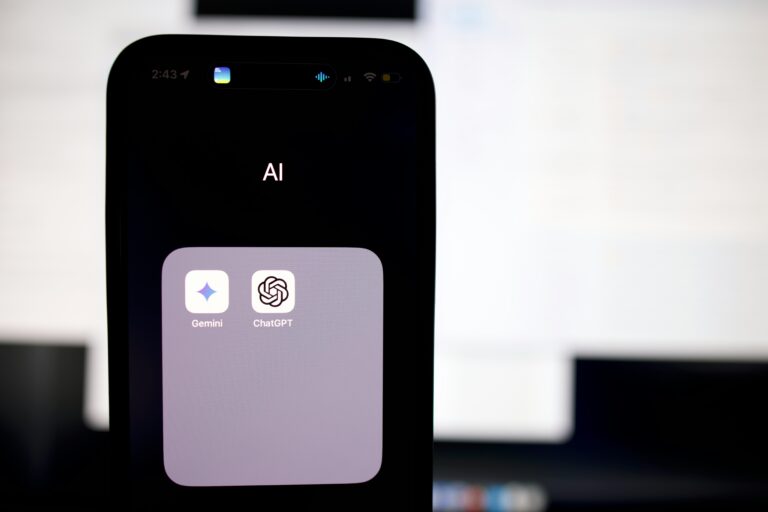
At this year’s SXSW EDU conference in Austin, Texas, we were thrilled to collaborate with our partners on a series of dynamic panel discussions covering groundbreaking topics in education. Panelists discussed the ways federal partnerships are fueling education R&D, and highlighted innovative tools for building more personalized and inclusive learning experiences. They also called on stakeholders to take bolder steps toward amplifying education research and transforming teaching and learning. Learn more about the themes explored in these sessions and find links to the audio recordings below!
How Federal Partnerships are Transforming Ed R&D
Changemakers in philanthropy and government are investing in education research and development, but often operate separately, slowing down major breakthroughs in education R&D. However, new opportunities, competitions, and grants spearheaded by partnerships with philanthropy and government are changing how the nation creates and funds opportunities. This panel featured conversations with leaders who are combining forces and grant applicants on the promise and possibility of a collaborative approach to education R&D.
Speakers
-
-
Joanna Cannon
Walton Family Foundation
-
James L. Moore III
National Science Foundation
-
Benjamin Motz
Indiana University
-
Aparna Ramanathan
Sound Town
-
Why Education Needs More Big Bets
The ways we teach and learn are changing faster than ever before, but how can we spur innovation that creates positive impacts for all learners? What big bets are needed? From deploying AI to new models of learning, this panel will discuss how we can make big bets – like establishing a DARPA for education – to foster innovation and create true 21st-century learning. In this session, experts from edtech, policy, and higher education explored the ecosystem creating, scaling, and harnessing innovation from policy to the classroom.
Speakers
John Bailey
American Enterprise Institute
Klinton Bicknell
Duolingo
Titilola Harley
Bill and Melinda Gates Foundation
Roberto Rodríguez
U.S. Department of Education
Making the Most of Middle School Math
Middle school math skills are directly connected to later success in high school and career, but only 26 percent of 8th graders are math proficient. New technologies can shift that, however, offering new opportunities to close opportunity gaps – especially for our most vulnerable students. In this discussion, education innovators and champions prioritizing the importance of middle school math highlighted solutions that are turning the tide in student performance.
Speakers
Sidney DMello
The University of Colorado at Boulder
Kumar Garg
Schmidt Futures
Bryan Richardson
The Bill & Melinda Gates Foundation
Jamie Sterling
Carnegie Learning
Creating a Data-Driven, Personalized Education System
Innovations like Learning and Employment Records, virtual wallets, and digital badges hold a lot of promise with these innovations making it potentially much easier for students to navigate their path from education to career. But efforts to modernize the nation’s data systems are nascent and could potentially exacerbate equity issues. Representatives from student groups, philanthropy, education, and innovation discussed how to reform data and data infrastructure to make it work for all students.
Speakers
Michele Leardo
Walton Family Foundation
Nick Moore
Alabama Governor’s Office of Education & Workforce Transformation
Chris Purifoy
Learning Economy Foundation
Arivumani Srivastava
Kentucky Student Voice Team
EdTech vs. TechEd: Making Emerging Technology Accessible
We have invested 90% of resources in education technology and 10% in technology education. But with AI changing the skills students need for tomorrow, learners must understand the technologies underneath emerging edtech, rather than simply using them. So how can we support students and instructors with tools that develop 21st-century competencies? In this panel, speakers delved into tools for content delivery, assessment, and instructional support that meet next-level learning experiences and considered what teaching about, and not just with, technology offers a post-ChatGPT world.
Speakers
Leigh Ann Delyser
CSforALL
Zarek Drozda
Data Science 4 Everyone
Alex Kotran
The AI Education Project
Albert Palacios
White House Office Of The National Cyber Director
Making Data Science That’s Really for Everyone
Even though the data revolution will impact every student, data science programs are often out of reach for diverse learners – and especially for students with disabilities. However, advocates are taking this as a call to action, creating innovative approaches that make data science accessible to every student. This session featured a discussion on the ways various champions are making data science education accessible to all learners. From innovative tools to approaches that celebrate disability as a fundamental component of diversity, these leaders are transforming who can thrive in the data future.
Speakers
Sarah Brasiel
Institute of Education Sciences, National Center for Special Education Research
Nick Evershed
The Guardian
Linda Loomis
Maryland State Department of Education
Andreas Stefik
University of Nevada, Las Vegas
Strength in Borders: Sourcing Global Data Science Innovation
U.S. education leaders lament our relative progress to other countries, but do little to proactively collaborate with those who are charging ahead. But K-12 data science does things differently. Born from global collaboration, data science education advocates leveraged global connections to accelerate a new field from its inception. From the first-ever cross-country K-12 learning framework to international exchange of research and curricula models, this session explored how going global made data science education a reality and the lessons we can learn from partners across the globe.
Speakers
Kate Farrell
University of Edinburgh, Moray House School of Education
Tue Halgreen
Organization for Economic Cooperation & Development
Ronit Nehemia
Israel Ministry of Education
Conrad Wolfram
Wolfram Research Europe



